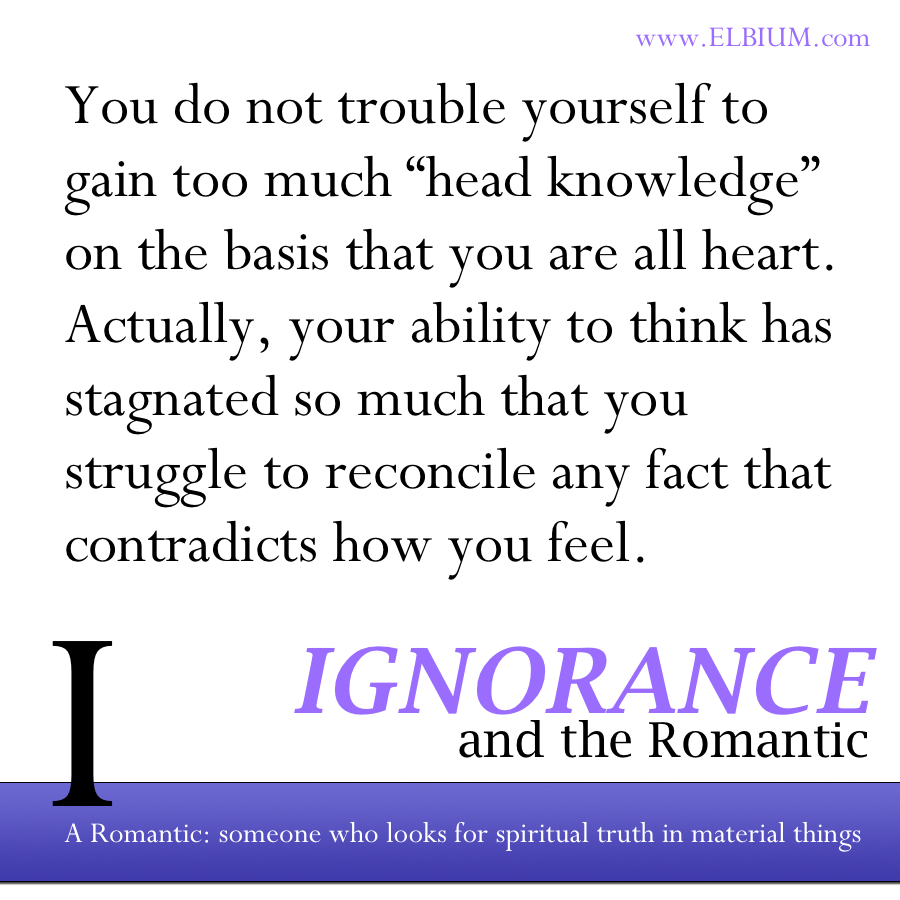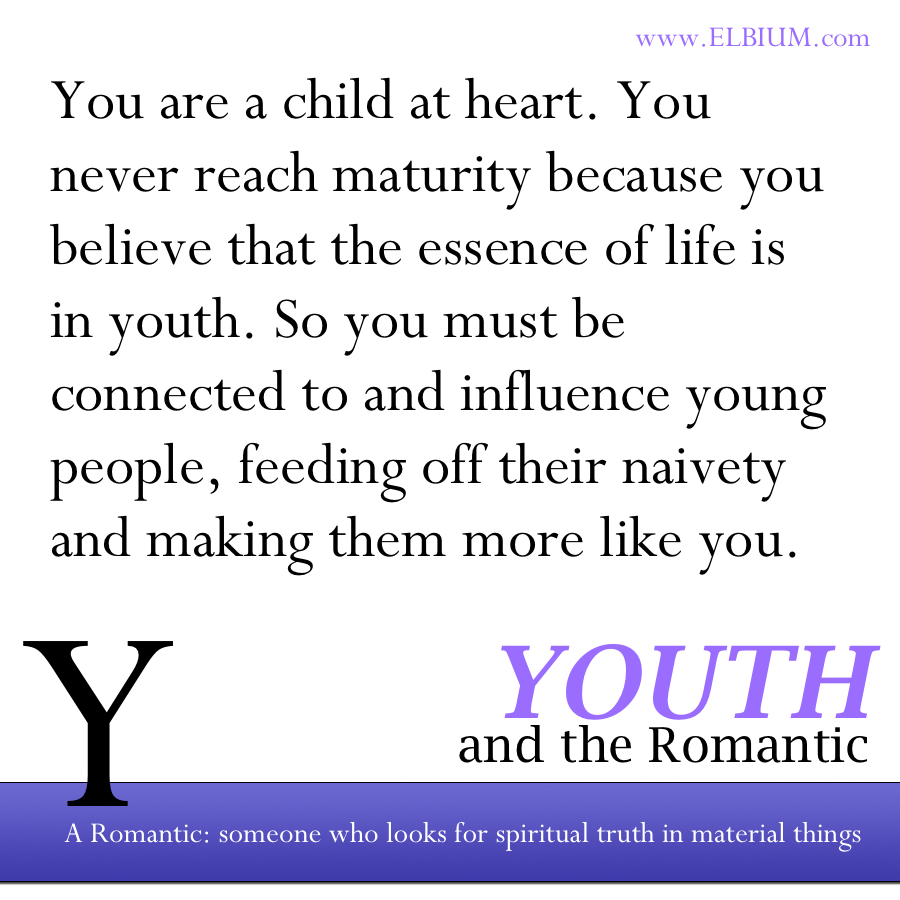This philosophy appears to be innocent and inoffensive but over time it perverts our perception of truth and destroys our ability to find truth outside of material things. For the Christian this engenders a change from living by faith through the Word of God, to trusting the Art of Man and therefore living by the senses.
If you had once walked in Christendom as “someone who expects to find spiritual truth in material things” you would have been deemed an idolater. After all, what does the idolater do that the Romantic does not? Either you make art or you purchase it from someone else, with the goal of gaining spiritual enlightenment outside of God’s appointed means.
Not everyone will demonstrate every aspect here defined because people are never consistent. However, Romanticism is often stronger in women than in men, giving rise to a dislocation between the sexes that was unknown before the Enlightenment. Then the difference between the sexes was one of roles in the world - now we have communication problems based on a woman’s desire to live in a Romanticised bubble and a man’s inability to make it happen.
In broader terms, Romanticism encourages people to live selfishly and diminishes their capacity to judge other people’s needs. (The Romantic person will be moved by a television appeal for famine relief in Africa but will be unable to see the mum struggling to afford the weekly shop at the next checkout.) Therefore it has dulled our characters and left us as wraiths. We are sometimes awoken to reality by the magnitude of problems we cannot avoid (sickness, death, tragedy) and it is at such times that we realise the inadequacy of the Romanticised mind. If we cannot find a way to feel good, then who are we and what is left of our lives? Therefore Romanticism is nothing more than well-dressed Humanism, ivy climbing around the tree of our faith, to sap our hope in Christ and make us glad of the ivy’s supportive embrace.



























